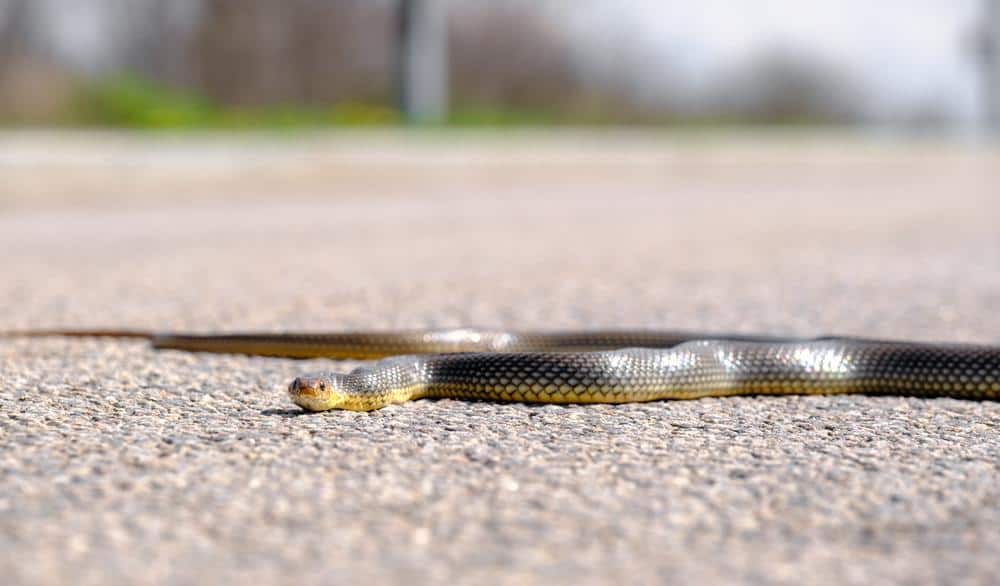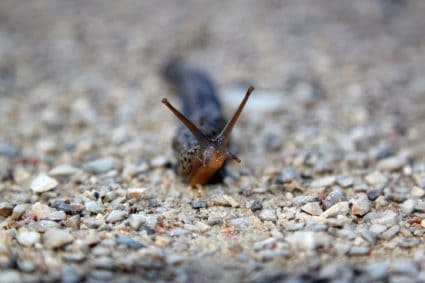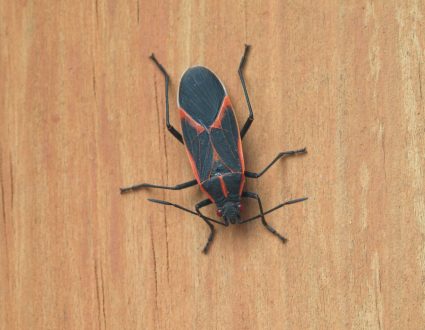
Snakes can be a common sight in gardens and yards, especially during the warmer months. While most are harmless and even beneficial, keeping them out of your flower bed can be a priority, particularly if you have pets or small children. This comprehensive guide will provide multiple solutions and options to help you create a snake-free flower bed.
To keep snakes out of your flower bed, you can install snake-proof fencing, eliminate their food sources such as rodents, use natural repellents like ammonia and vinegar, change your landscaping by keeping grass short and removing large bushes, remove potential hiding places like cracks and holes, and plant snake-repelling plants like marigolds and lemongrass. It’s important to identify the type of snake you’re dealing with before taking any action.
Identifying Common Snakes in Flower Beds
Before you can effectively keep snakes out of your flower bed, it’s important to identify the types of snakes you’re dealing with. Some of the most common types found in flower beds include the Eastern Worm Snake, Smooth Earth Snake, Brown Snake, Common Garter Snake, Common Kingsnake, Copperheads, Common Corn Snake, Northern Water Snake, Western Fox Snake, and Plains Garter Snake.
Remember, if you’re dealing with a venomous snake or if you’re unsure about the type of snake, it’s best to contact a professional pest control service.
Installing Snake-Proof Fencing
One of the most effective ways to keep snakes out of your garden is by installing snake-proof fencing. This type of fencing is usually made from vinyl or hardware cloth, with mesh that is too narrow for snakes to squeeze through. The fencing should be installed at a slope or slant to prevent snakes from climbing over it.
Eliminating Food Sources
Snakes are attracted to areas where they can find food, which primarily includes rodents like mice and rats. If you have a rodent problem, addressing it can help deter snakes from your garden.
Using Natural Repellents
Snakes have a strong sense of smell and are repelled by certain odors. For example, they dislike the smell of ammonia, white vinegar, garlic, and onions. Spraying these substances around your garden or soaking a rug in them and leaving it out can help keep snakes away.
Changing Your Landscaping
Snakes are attracted to garden debris, holes, overgrowth, and rocks. Keeping your grass short and eliminating large bushes or rock displays can help deter snakes. You can also plant species that naturally repel snakes, such as marigolds, lemongrass, and wormwood.
Removing Hiding Places
Snakes look for dark, damp places to rest, such as cracks, crevices, and holes. Inspect the exterior of your home and your garden for any potential hiding places and seal them off. If you have outdoor wood piles or compost piles, consider removing them as they can attract snakes.
Using Snake-Repelling Plants
Some plants are known to repel snakes. Incorporating these plants into your landscape design can help keep snakes away. Common snake-repelling plants include marigolds, lemongrass, Mother-in-Law’s tongue, wormwood, onion, and garlic.
Keeping Snakes Out: Conclusion
Keeping snakes out of your flower bed involves a combination of strategies that focus on making your garden less attractive to snakes and physically preventing them from entering. Remember, it’s important to identify the type of snake you’re dealing with before taking any action. Some snakes are beneficial as they help control other pests.
With these tips, you can create a snake-free environment for your flowers to thrive. Happy gardening!
Frequently Asked Questions
What should I do if I encounter a venomous snake in my flower bed?
If you encounter a venomous snake in your flower bed, do not attempt to handle it yourself. Instead, keep a safe distance and contact a professional pest control service or your local wildlife department.
Can I use any type of vinegar as a natural snake repellent?
While many types of vinegar can deter snakes, white vinegar is often recommended as it has a strong smell that snakes find unpleasant.
How often should I apply natural repellents to keep snakes away?
The frequency of application can depend on several factors, including the type of repellent, the weather, and the level of snake activity in your area. However, as a general rule, it’s a good idea to reapply natural repellents once a week or after heavy rain.
Are there any downsides to using snake-proof fencing?
Snake-proof fencing can be an effective way to keep snakes out, but it also has some potential downsides. For example, it can be expensive to install and may not be 100% effective against all types of snakes, especially small ones. Furthermore, it may also block other wildlife from accessing your garden.
Can I use store-bought snake repellents instead of natural ones?
Yes, there are many commercial snake repellents available that can be effective. However, these often contain chemicals that may not be safe for all plants, pets, or children. Always read and follow the product instructions carefully.








